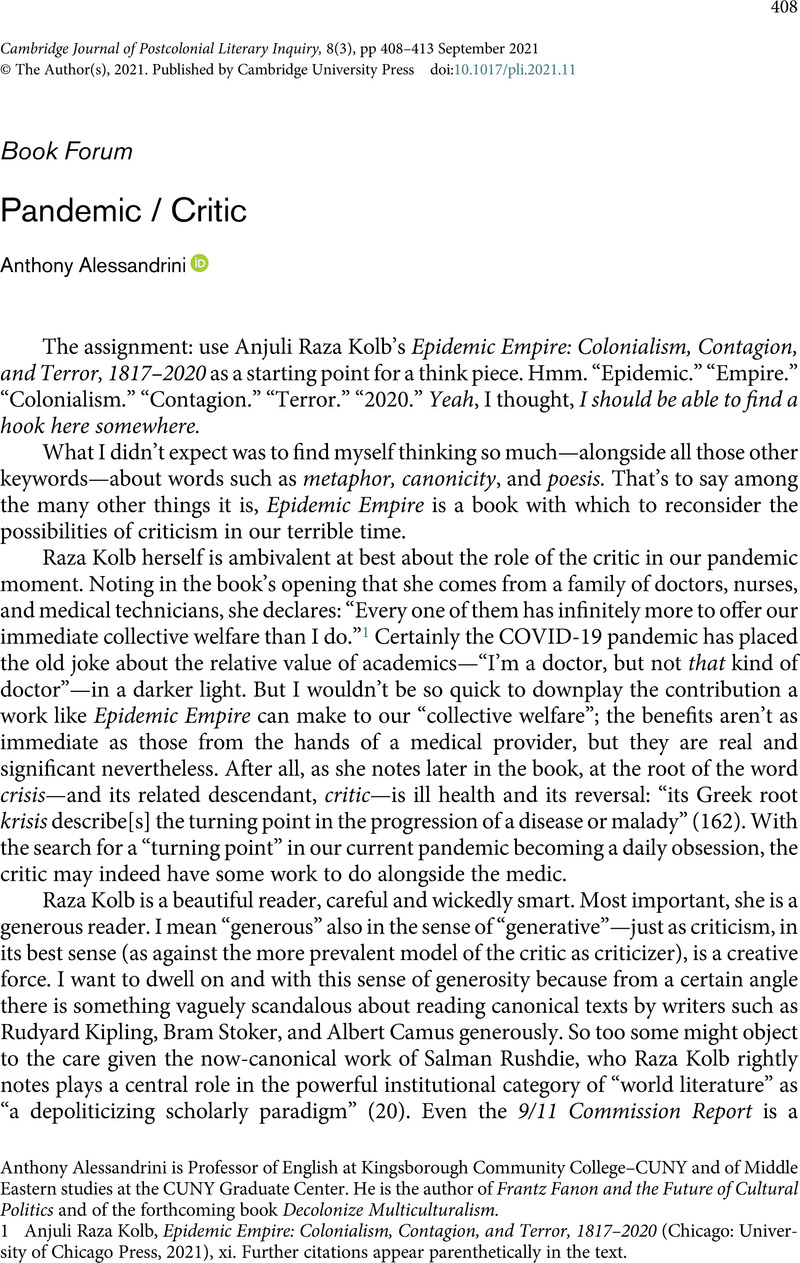No CrossRef data available.
Article contents
Pandemic / Critic
Published online by Cambridge University Press: 11 October 2021
Abstract

- Type
- Book Forum on Anjuli Raza Kolb’s Epidemic Empire: Colonialism, Contagion, and Terror, 1817-2020
- Information
- Cambridge Journal of Postcolonial Literary Inquiry , Volume 8 , Issue 3 , September 2021 , pp. 408 - 413
- Copyright
- © The Author(s), 2021. Published by Cambridge University Press
References
1 Kolb, Anjuli Raza, Epidemic Empire: Colonialism, Contagion, and Terror, 1817–2020 (Chicago: University of Chicago Press, 2021), xi. Further citations appear parenthetically in the text.Google Scholar
2 Said, Edward, Culture and Imperialism (New York: Vintage, 1994), p. 162.Google Scholar
3 See also her moving meditation on Said in the essay “Scandal Folder,” published on the Poetry Foundation Blog (September 19, 2018).
4 Joseph Slaughter, “The Occupation of Literature and Books That Are Difficult to Get,” Jadaliyya (May 12, 2017).
5 Guha, Ranajit, “The Prose of Counter-Insurgency,” in Selected Subaltern Studies, ed. Guha, Ranajit and Spivak, Gayatri Chakravorty (New York: Oxford University Press, 1988), 46, quoted in Raza Kolb (38).Google Scholar
6 Davis, Mike, Late Victorian Holocausts: El Niño Famines and the Making of the Third World (New York: Verso Books, 2002).Google Scholar
7 “Epidemic Empire: An Interview with Anjuli Fatima Raza Kolb,” Journal of the History of Ideas blog, January 18, 2021.
8 Viswanathan, Gauri, Masks of Conquest: Literary Study and British Rule in India (New York: Columbia University Press, 1989).Google Scholar
9 Sharif, Solmaz, LOOK (Minneapolis: Greywolf Press, 2016), 3, quoted in Raza Kolb (281).Google Scholar





